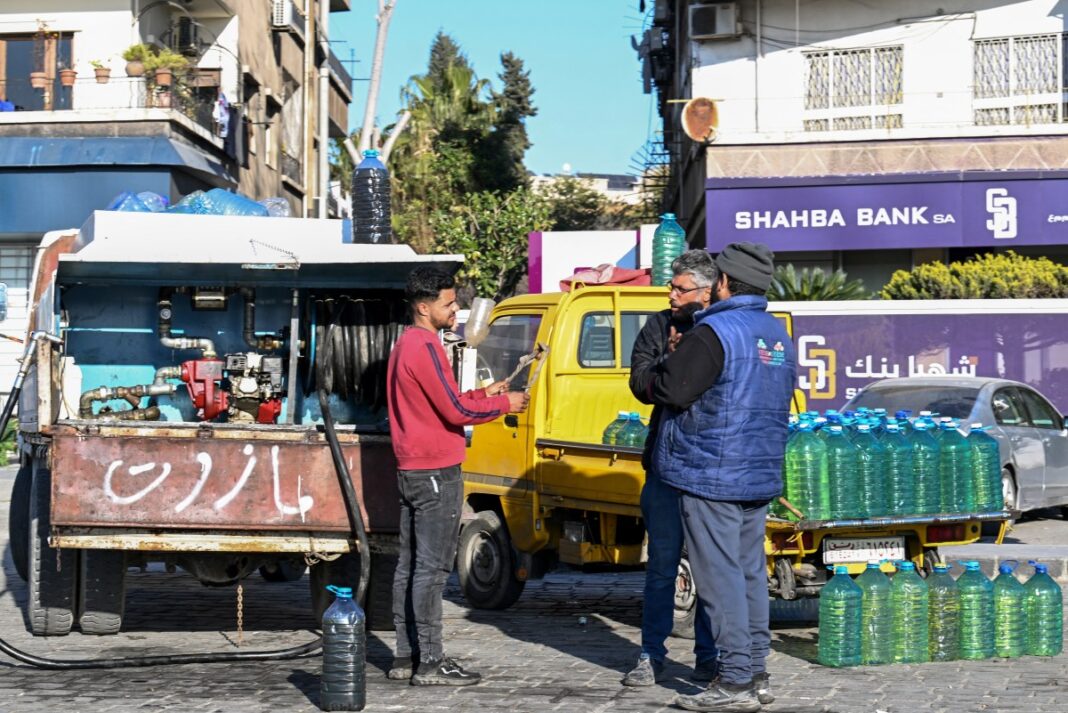The Syrian government’s decision to standardize tariffs has led to a drastic increase in duty on imports from Turkey, sparking protests in northern Syria amid widespread economic hardship, local media reported.
Syria’s new General Authority for Land and Maritime Transport announced on January 11 a standard tariff that will apply to all land, sea and air border crossings. While tariffs on some goods were reduced by 50-60 percent, tariffs on imports entering through the northern border crossings, including the Bab al-Hawa crossing with Turkey, increased by up to 500 percent. This increase has alarmed traders and residents already struggling with high levels of poverty, as many fear it will exacerbate economic challenges and drive up prices.
Protests erupted in Sarmada, a major commercial center in northwestern Idlib province, as shopkeepers closed their stores to protest the drastic tariff hikes. Social media users reported price hikes on essential goods such as cement, iron, flour and gasoline. The duty on a ton of gasoline rose from $30 to $210, while duty on flour increased tenfold from $2 to $20 per ton.
Speaking to the Enab Baladi news website, economist Firas Shaabo argued that the impact of the decision was overstated as the tariff increases, while significant, only marginally increased the cost per kilogram for many goods. However, he acknowledged that the timing — amid Syria’s fragile post-conflict recovery — could worsen market conditions and reduce consumer purchasing power.
Supporters of the policy, such as officials from the caretaker government in Damascus, emphasized the policy’s role in boosting local industry, supporting farmers through agricultural incentives and increasing government revenue in the wake of finances decimated by the war. The government also claims the policy offers exemptions for returning investors and industrialists.
Nevertheless, critics see the decision as ill-timed. Shaabo called for a review of tariffs on fuel and essential goods, arguing that the escalating costs could weigh on the northern region’s struggling economy. Meanwhile, traders complained of disrupted contracts and lower profit margins, with many predicting a recession in northern markets.
The changes coincide with the general reopening of the Syrian economy following the fall of Bashar al-Assad’s regime. The policy aims to stabilize the treasury and strengthen local industry. However, protests and rising tensions indicate that the implementation of this policy remains controversial across the country.



